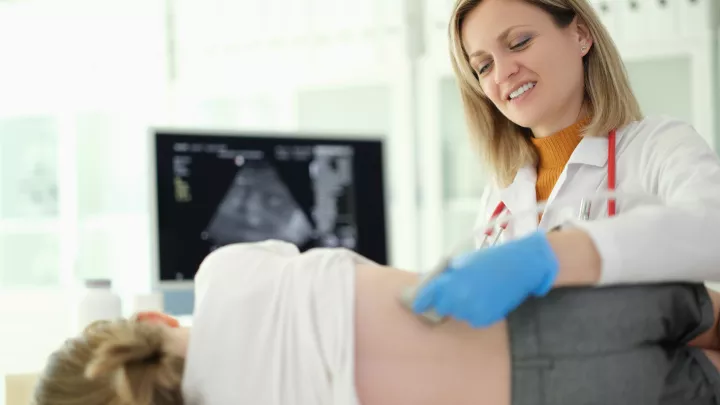Pediatric Urology Research
Does Your Child Have an Overactive Bladder?
Andy Chang, MD is conducting clinical research to evaluate the safety and effectiveness of a new, investigational medicine to treat bladder incontinence. The study medicine is OXY topical gel (oxybutynin chloride), and applied only once a day.
Participants must be:
- Between the ages of 6-16 years old
- Diagnosed with bladder incontinence, possibly associated with spina bifida
- Using CIC for bladder control
The study is 22 weeks. All study visits are at no cost to you, and compensation may be provided for your time and travel.
To participate, contact Shirily Argon at 323-361-5573.
Physician-scientists from the Division of Urology at Children’s Hospital Los Angeles are actively involved in leading-edge pediatric urology research. Topics currently being investigated, include:
- Stem cells, tissue engineering and regenerative medicine
- Etiology of human cryptorchidism (undescended testes)
- Nanotechnology
- Clinical outcomes
- Stem Cells, Tissue Engineering and Regenerative Medicine
De Filippo Laboratory
Under the leadership of Roger De Filippo, MD, and Director of Research, Laura Perin, PhD, the Laboratory for Organ Regenerative Research and Cell Therapeutics in Urology focuses on new uses of stem cells and other techniques for organ regeneration and cell therapeutics.
- Current projects include kidney organ replacement techniques with stem cells, as well as, new stem cell therapy studies for lung and heart disease, diabetes and kidney diseases. The goal is to search for potential applications that could be used to prevent these diseases and/or significantly delay the damage they cause.
Selected Recent Publications
- Perin L, Giuliani S, Jin D, Sedrakyan S, Carraro G, Habibian R, Warburton D, Atala A, De Filippo RE. (2007) Renal differentiation of amniotic fluid stem cells. Cell Prolif. Dec;40(6):936-48.
- Giuliani S, Perin L, Sedrakyan S, Kokorowski P, Jin D, De Filippo R. (2008) Ex vivo whole embryonic kidney culture: a novel method for research in development, regeneration and transplantation. J Urol. Jan;179(1):365-70.
- Carraro G, Perin L, Sedrakyan S, Giuliani S, Tiozzo C, Lee J, Driscoll B, Turcatel G, De Langhe SP, Bellusci S, Minoo P, Atala A, De Filippo RE, Warburton D. (2008) Human amniotic fluid stem cells can integerate and differntiate into epithelial lung lineages. Stem Cells. Nov; 26(11): 2902-11.
- Da Sacco S, Sedrakyan S, Boldrin F, Parnigotto PP, Habibian R, Warburton D, De Filippo RE*, Perin L*. (2010) The systemic characterization of human amniotic fluid: a potential new source of organ specific precursor cells for future regenerative medicine applications J. Urology, in press. (Doctors De Filippo and Perin share last authorship.)
- Perin L, Giuliani S, Sedrakyan S, Da Sacco S, Carraro G, Liron S, Lemley KV, Rosol M, Wu S, Atala A, Warburton D, De Filippo RE. (2010) Protective Effect of Human Amniotic Fluid Stem Cells in Acute Tubular Necrosis, PluS One, in press.
Etiology of Human Cryptorchidism (Undescended Testes)
Victoria Cortessis, PhD, of the USC Department of Preventive Medicine and Children’s Hospital Los Angeles Division of Urology, is investigating the genetic causes of a common condition, cryptorchidism (undescended testes).
Nanotechnology
Andy Chang, MD, and Travis Williams, PhD, of the USC Department of Chemistry are currently studying nanoparticles to create a catheter-free diagnosis of vesicoureteral reflux. Eliminating the need for catheterization would cause a significant shift in diagnosing this condition. Their research can also be used in drug delivery to treat cancers in a more exact manner.
This study is supported by foundations grants, including a Wright Foundation grant to explore the use of their technology in cancer, and USC Zumberge Interdisciplinary Research and Innovation funding.
Clinical Research/Outcomes Research
Recognizing the need for improving the quality of care provided to children and adolescents with pediatric urologic issues, the Clinical and Outcomes Research Program, directed by Steve Kim, MD, MSCE, and Paul Kokorowski, MD, MPH, uses data to track performance and serve as a basis for continuous quality improvement to ensure that children receive the safest and most appropriate care for their condition.


